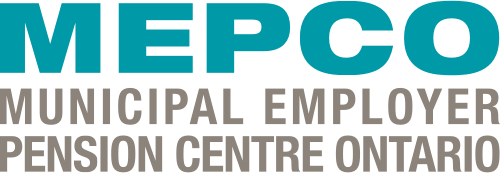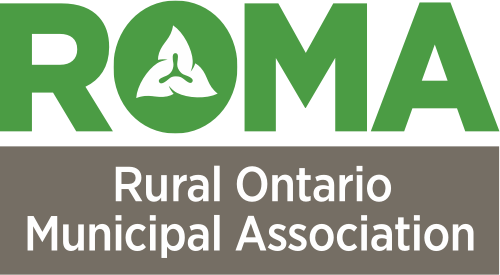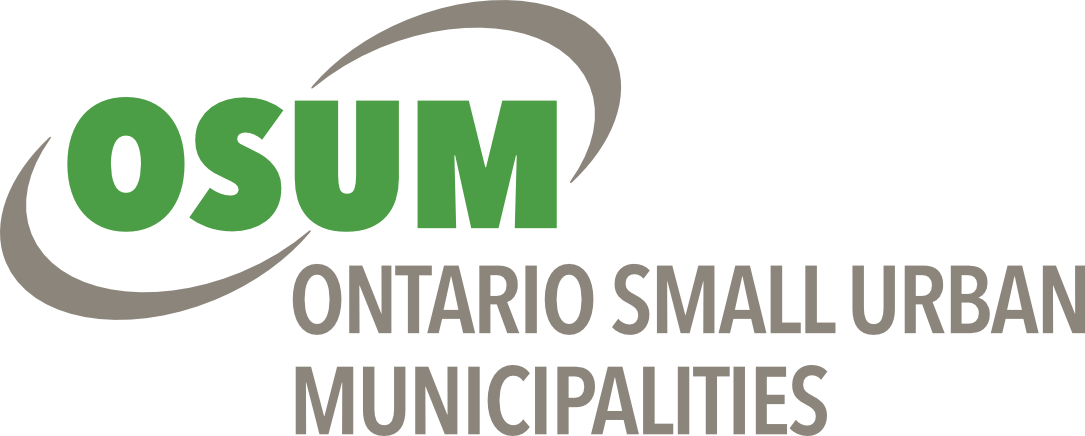Closed Meeting FAQ
Closed Meeting Investigator Program - Frequently Asked Questions
These “frequently asked questions” reflect our best efforts to interpret the legislation (Sections 239.1 and 239.2 of the Municipal Act, 2001) and its intent, and demonstrate how the LAS Investigator Program operates.
What is the Requirement?
Since January 1, 2008 any person can request that an investigation be undertaken respecting whether a municipality or local board, or a committee of either, has complied with closed meeting rules. Municipalities are able to appoint an Investigator for this purpose. If a municipality chooses not to appoint an Investigator, the Provincial Ombudsman assumes the role.
What should be considered in appointing an Investigator?
A municipality can appoint any person, corporation or individual, including a member of municipal staff, to conduct investigations pursuant to Section 239.2. In making its selection of an Investigator, a municipal Council should consider the intent and wording of the Act. Sections 239.1 and 239.2 were enacted to enhance transparency and accountability. The Act specifically speaks to impartiality, credibility, confidentiality, and independence with respect to the investigation process.
What is Local Authority Services (LAS)?
LAS is an affiliate company of AMO, with independent governance through its own Board of Directors.
Why appoint LAS as Investigator?
LAS offers this service because it is complementary to our existing suite of municipal programs and services whereby value can be enhanced through group procurement. The LAS program also ensures a consistent standard of service to all participants.
LAS believes that this initiative assists municipalities in demonstrating that they are a mature and accountable order of government, capable of managing their own affairs. LAS ensures that Review Officers have a knowledge of and appreciation for the municipal environment.
What is Amberley Gavel?
LAS currently delegates its authority as Investigator to Amberley Gavel. This company provides a panel of Review Officers who will conduct investigations on LAS’ behalf.
What background do the Review Officers have?
The Review Officers are persons who have extensive experience with municipal government and municipal processes. This experience might be gained as a staff person or as a previous elected official, or through a close working relationship with municipal government over an extended period of time. Review Officers are located geographically around the Province to minimize costs to participating municipalities, where possible.
Who appoints an Investigator for a Local Board?
The municipal Council does. It will automatically be the one who is appointed to deal with requests regarding Council meetings.
What is a “Local Board”?
The definition of a local board is derived from two sources for purposes of closed meeting investigations. The first is Section 1 of the Municipal Act 2001, which says:
“ “local board” means a municipal services board, transportation commission, public library board, board of health, police services board, planning board, or any other board, commission, committee, body or local authority established or exercising any power under any act with respect to the affairs or purposes of one or more municipalities excluding a school board and a conservation authority”.
But Section 238, further states: ““local board” does not include police services boards or public library boards”.
The closed meeting investigation process covers all Municipal Boards and Committees except: School Boards, Conservation Authorities, Police Services Boards, and Public Library Boards. These are the only exceptions - Business Improvement Area Boards, Arena Boards, Transit Commissions, and Boards of Health, for example, are all covered.
For a specific local situation not addressed above, the municipality should review the establishing by-law and enabling legislation for the Board or Committee, and if necessary consult its solicitor. Such situations would include a corporation established under the Section 203 of the Municipal Act 2001, for example. Other corporations may also be excluded by their enabling legislation.
What is a “Committee”?
Section 238 says that “committee means any advisory or other committee, subcommittee or similar entity of which at least 50% of the members are also members of one or more councils or local boards”.
What about Joint Boards and Committees?
Again, guidance should come from the by-laws and legislation creating the specific body.
Section 1 of the Act defines "local board" to mean, "a municipal service board, transportation commission, public library board, board of health, police services board, planning board, or any other board, commission, committee, body or local authority established or exercising any power under any Act with respect to the affairs or purposes of one or more municipalities, excluding a school board and a conservation authority;".
Section 238(1) lists the exclusions for the Part of the Act that includes the closed meeting investigation process. The definitions of “local board” in sections 1 and 238 must be read together to what boards are covered by the closed meeting rules.
The Act is silent with respect to who will investigate in the case of a joint board such as a Board of Health. It would appear that if all of the municipalities appointing to the joint board have appointed the same Investigator, for example LAS, then that Investigator would investigate a request. Each municipality should include the joint board in its list of included boards. If, however different municipalities have appointed different Investigators, then it is not clear which Investigator will respond. It is recommended that the joint board decide by resolution which Investigator is to be appointed. Again, this should be reflected in the municipal list of boards included in the program. Finally if one or more of the appointing municipalities has not appointed an Investigator and the Joint Board has not passed a resolution accepting the appointment of an Investigator of one of the appointing municipalities, it is likely that the Provincial Ombudsman will be the Investigator for the Joint Board's situation.
What is a “Person”?
- A “Person” includes an individual,
- “ “person” includes a corporation and the heirs, executors, administrators or other legal representatives of a person to whom the context can apply according to law.” (Interpretation Act),
- This was superseded by the Legislation Act, 2006 - Part VI, section 87, states “person” includes a corporation.
- “ “person” includes a municipality unless the context otherwise requires;”
(Municipal Act, 2001)
What happens if an Investigator is not appointed by the municipality?
Since January 1, 2008, a person may request the Provincial Ombudsman to undertake an investigation of the compliance of a closed meeting with the Municipal Act, 2001 or a procedure by-law. Even if a request has gone to the Ombudsman, the municipality could still appoint an Investigator for subsequent requests. The Ombudsman would complete the work on the requests filed with their office.
How does a person file a request and is there a required form for a request?
The municipality can decide upon the form for a request, but presumably the request should be signed by the person requesting the investigation, and should include contact information and sufficient detail to indicate the meeting that the request concerns, and a general indication of why the request has been made.
What are the requirements of an Investigation?
The investigation process is required to be credible, its activities confidential, and it is required to be conducted impartially and independently. Neither Council, nor a Local Board, nor any of its members should attempt to provide direction to the investigation process once a request has been made. Council or Board members could be interviewed as could any other person in attendance at the meeting that is the subject of the request.
What does the Municipality or Local Board do with a request for an Investigation if they have appointed LAS?
The request should be directed to the Municipal Clerk who will have a checklist of material required for each investigation – this is available from LAS. This standardized checklist is designed to minimize investigation costs and ensure the credibility of the investigation process.
What is the LAS investigation process?
See the The LAS Investigation Process webpage for details
Will all requests proceed to a full investigation?
During the investigative process the person who filed the request may decide to withdraw the request. If that happens, the file will be closed and the action reported to the Council, or to the Council and Local Board.
Some requests may be determined upon preliminary review to be frivolous or vexatious. Following such a determination the requestor will be notified of this decision by the Investigator as will the Council, or the Council and the Local Board.
Are all reports reviewed by more than one person?
Each draft report prepared by a Review Officer is peer reviewed by Amberley Gavel. In most instances this will be undertaken by one of the principals of Amberley Gavel. Only after the peer review has been completed will Amberley Gavel submit the report and any recommendations to the municipality or local board.
What are the fees for this LAS program?
See the Program Fees webpage for details
Is there a policy/guidelines related to the expenses that Amberley Gavel may charge for a Review Officer conducting an investigation?
The municipality or local board will be responsible for the reasonable expenses of conducting the investigation. Travel, meals and accommodation and administration, such as copying, will be the primary expenses. Amberley Gavel is committed to keeping out of pocket costs incurred as a result of the investigation at a reasonable level.
How long does an investigation take?
The time spent on conducting an investigation will depend on a number of factors. It could be as short as a few hours to investigate a complaint that is on its face without merit or outside the scope or purpose of the closed meeting investigator. But it could also be a few working days depending upon a number of factors such as the complexity of the situation, the number of persons to be interviewed and the organization of interviews by the Review Officer and the municipality.
What is investigated under a complaint?
The Act provides in section 239.1 that the mandate of the investigator is to determine whether a municipality or local board has complied with section 239 or the procedure by-law of the municipality or local board. The LAS program reviews only the procedure as it relates to the acceptability of a closed meeting and not the issue at hand in the complaint.
Can a municipality charge a fee for a request for an investigation?
Nothing in section 239 addresses the issue of a fee, however, any fee or charge would presumably be established by the municipality or local board pursuant to Part XII of the Municipal Act, 2001. A municipality may wish to obtain legal advice in establishing such a fee.
Is there an appeal mechanism available for Investigator reports?
The Municipal Act, 2001 does not provide for an appeal of the report.
Does the Municipality have a choice of Review Officer?
The decision as to which Review Officer will be delegated the task of conducting the investigation will be made by LAS’ delegate – Amberley Gavel. A Review Officer that has a conflict as a result of an existing relationship with a municipality or local board will not be involved in the investigation.
Who can see a request?
The Municipal Act, 2001 imposes a duty of confidentiality on every person involved with the Investigation. This duty prevails even over the Municipal Freedom of Information and Protection of Privacy Act.
Is the final LAS report of the Investigator available to the public?
Yes. The Act requires that it be available to the public.





